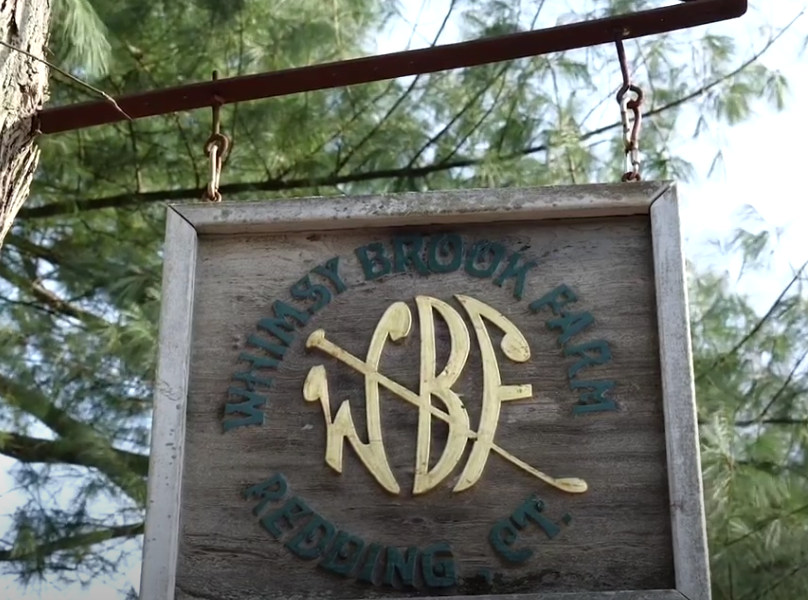
The CT Compost Alliance, a newly formed group of compost enthusiasts representing a variety of stakeholder organizations, has shared a series of resources, including recorded webinars, videos, and a new listserv to ensure that current and future composters have the opportunity to continue to learn, network and engage.
Connecticut is facing a waste crisis, as some of the traditional options for disposing of municipal solid waste are becoming more costly or becoming unavailable. According to a 2015 study, 35% of what residents throw away is organic material—food scraps and yard waste—that can be donated, composted, or used as animal feed. Increasing composting is a key piece to addressing the state’s waste crisis, and the more sustainable waste future we envision for our state.
Composting is the actively managed aerobic process of biologically decomposing organic materials, such as leaves, manures, food scraps or sawdust among other feedstocks into a stable, pathogen free, humus rich substance suitable for soils and growing plants. Many farms may compost their manures and bedding and municipalities may compost leaves, but few have the technical expertise or experience to add food scraps as a feedstock. This is where the CT Compost Alliance comes in, to help those that want to compost or improve their composting efforts.
The CT Compost Alliance was formed in early 2019 when, seeing a need for greater understanding of the art and science of compost, enthusiasts came together to coordinate the first statewide compost conference in Connecticut. While COVID-19 canceled the in-person March 2020 conference, it was reworked into a free virtual series of webinars from a wide range of practitioners, scientists, government agencies, farmers, and others. Planning Partners for the webinar series included: The Connecticut Department of Energy and Environmental Protection (DEEP), Central Connecticut State University, the Connecticut Department of Agriculture, the Connecticut Resource Conservation & Development Area (CT RC&D), the Northeast Organic Farming Association of Connecticut (CT NOFA), the U.S. Department of Agriculture’s Natural Resources Conservation Service, the University of Connecticut College of Agriculture, Health and Natural Resources’ Extension program, American Farmland Trust, the Lower Connecticut River Valley Council of Governments (RiverCOG), the Northwest Conservation District, the Center for Ecotechnology (CET), the Connecticut Council on Soil and Water Conservation, the Composting Association of Vermont and other partners from Massachusetts and Vermont.
The focus of the 2020 CT Compost Webinar Series was to assist farms and municipalities to learn the science, art and logistics for adding food scraps to their existing compost operations. Over 200 people attended the five webinar programs that showcased composting at municipal and farm sites, focusing on feedstocks, equipment, recipe development, nutrient management and environmental planning, siting, permitting and record keeping for compost management.
The Alliance also funded the production of three videos, allowing virtual field trips to learn about Dr. Candace Benyei’s horse farm compost operation at her Whimsy Brook Farm in Redding, a community composting operation in New Haven run by Domingo Medina of Peels and Wheels Composting, and a large-scale manure composting operation managed by Eric Whiting at Laurelbrook Farm in Canaan.
“We want this effort to be just the beginning,” said Amanda Fargo-Johnson, Agricultural Programs Director, with CT RC&D. “After attending the compost conference in Rhode Island, I am pleased we’re off to a good start for creating a network of composters here in Connecticut.” The listserv, she added, will help expand the network and the sharing, needed to create a strong foundation of composters and increase compost literacy in Connecticut.
“We need to build up the health quality of our soils and food waste is a great resource that can help us do that,” said Domingo Medina, owner of Peels and Wheels Composting. “Composting is our unquestionable path to reduce waste, sequester carbon, build healthy soils and grow nutrient rich food, while creating jobs and contributing to mitigate climate change.”
From a survey of attendees, the Alliance was excited to hear interest in a range of future topics from worm composting to mortality composting, testing, quality and application of finished compost to municipal compost bin distribution, as well as backyard composting, biochar, impact of PFAS on compost, school composting, and home composting.
“These resources come at a great time,” said Sherill Baldwin, environmental analyst with DEEP. “The Connecticut Coalition for Sustainable Materials Management (CCSMM) that has been meeting all fall, included a working group focusing on organics. These webinars and videos are a good start for providing resources for communities interested in composting and the listserv will help us expand all these connections.”
The CCSMM’s Food Scraps/ Organics Collection and Diversion working group explored reducing food waste, recovering food for human consumption or animal consumption, composting and anaerobic digestion. The CCSMM survey to municipalities included feedback showing that many municipalities want to learn more about recovering food scraps at transfer stations, backyard and community composting, composting at schools, composting regionally, and recovering edible food for donations. The CT Compost Alliance looks to include all stakeholders interested in learning more about composting and how to increase compost activities in Connecticut.
Recordings of the webinars are accessible on DEEP’s website here, and the webinar recordings and videos can be found on CT RC&D’s webpage here. All interested in increasing composting in Connecticut are encouraged to join the CT Compost Network listserv, a GoogleGroup. Special thanks to sponsors of the CT Compost Alliance’s efforts in 2020 including Sustainable CT, Farm Credit Northeast AgEnhancement, Recycle CT Foundation, UConn Master Composter Program, American Farmland Trust, CT Recyclers Coalition, Peels & Wheels Composting, Council on Soil and Water Conservation, and CCAPA.